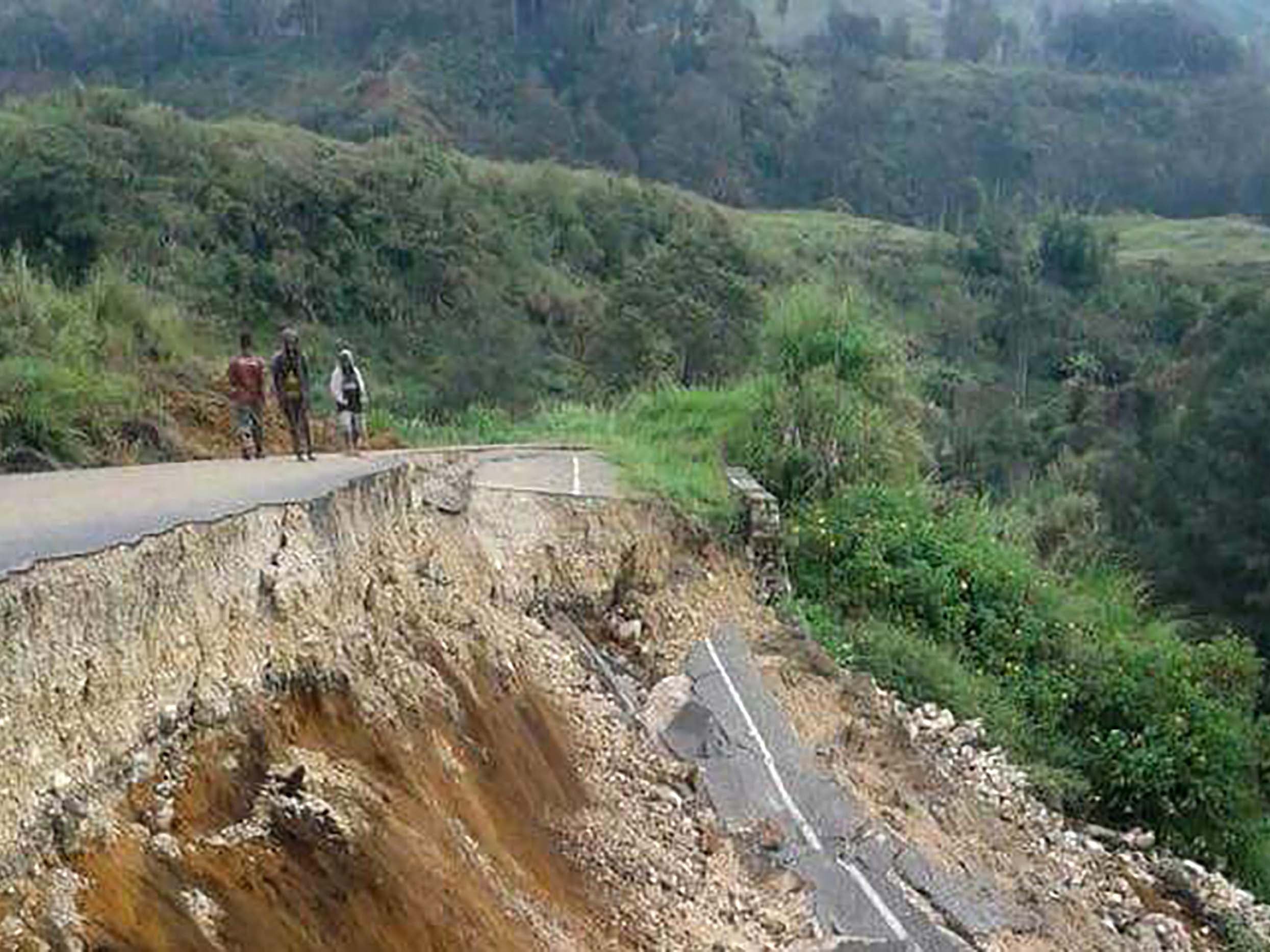Papua New Guinea earthquake: Powerful 6.5 tremor strikes country's highlands
It comes as United Nations forced to suspend relief efforts in areas worst hit by previous quake

Your support helps us to tell the story
From reproductive rights to climate change to Big Tech, The Independent is on the ground when the story is developing. Whether it's investigating the financials of Elon Musk's pro-Trump PAC or producing our latest documentary, 'The A Word', which shines a light on the American women fighting for reproductive rights, we know how important it is to parse out the facts from the messaging.
At such a critical moment in US history, we need reporters on the ground. Your donation allows us to keep sending journalists to speak to both sides of the story.
The Independent is trusted by Americans across the entire political spectrum. And unlike many other quality news outlets, we choose not to lock Americans out of our reporting and analysis with paywalls. We believe quality journalism should be available to everyone, paid for by those who can afford it.
Your support makes all the difference.A powerful 6.5 magnitude earthquake struck the remote highlands of Papua New Guinea, the European Earthquake Monitoring Service said.
The very shallow tremor was only 1.2 miles deep and 58 miles southwest of Porgera in the Enga province, it said.
There were no immediate reports of casualties.
It comes after a 7.5 magnitude quake in the same highlands region in February claimed the lives of more than 150 people.
On Thursday, the United Nations (UN) was forced to suspend relief efforts in areas worst hit by the disaster after it said violence and instability made it unsafe for its workers.
Around 270,000 people - 125,000 of them children - still need emergency aid, according to the UN.
Earthquakes are common in Papua New Guinea, which sits on the Pacific's "Ring of Fire", a hotspot for seismic activity due to friction between tectonic plates.
Its mountainous terrain means it often takes aid agencies and government officials days before they can gather information on damage and casualties.
Join our commenting forum
Join thought-provoking conversations, follow other Independent readers and see their replies
Comments